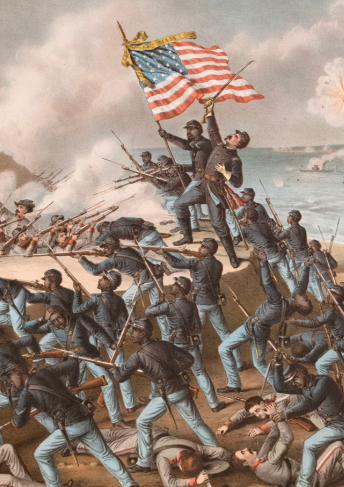SMALL COMPENSATION FOR A LIFE AND FORTUNE LOST
Autograph Manuscript Order, Signed "James Church" and "O[liver] Ellsworth" to John Lawrence, for payment to the widow of Col. William Douglas for "Extraordinary Trouble in obtaining Pay for his Regt."
Hartford [CT]: June 28th 1777.
Price: $750.00
About the item
1 p., pen and ink on paper, dockteted on the verso and signed by "E[benezer] Plummer" and "Jonah Clark". 8 x 6.75 inches. SMALL COMPENSATION FOR A LIFE AND FORTUNE LOST. Old folds, else very fine.
Item #308472
An important testament offering proof of the sacrifice and hardship of a memorialized Connecticut hero signed by one of its favorite sons, reading:
"Sir pay to Hannah Douglas Executrise (sic) to the Estate of Col. William Douglas deceased the sum of Nine pounds Fifteen Shillings & onepenny (sic) money being for Extraordinary Trouble in obtaining pay for his Regt. from Headquarters Hartford June 28th 1777"
William Douglas was born in Plainfield Connecticut on January 27, 1742, to John Douglas and Olive Spaulding. He married Hannah Mansfield in 1767, and they had four children. Douglas was a veteran of the French and Indian War and a prosperous mariner and merchant who had acquired substantial wealth trading in the West indies. He reentered military service at the outbreak of the Revolutionary War, taking part in the expedition that took Fort Ticonderoga, as well as commanding a flotilla on Lake Champlain, and leading a successful raid on St. John. In 1776, he was elected to the Connecticut General Assembly, but declined in order to accept a commission as Colonel of the Connecticut State Regiment. The regiment joined Washington and the Continental Army in New York, where it was routed at Kip’s Bay but redeemed itself the next day at the Battle of Harlem Heights, where Douglas reportedly had his horse shot out from under him and his uniform riddled with bullets. At the close of the 1776 campaign, Douglas, had become ill to the point where he permanently lost the full use of his voice and returned to his home in Northford (now North Branford) CT. Having spent his personal funds to make up for shortcomings in pay and supplies for his regiment, Douglas saw his finances deteriorate along with his health over the next few months. He died on May 28, 1777. Much of the fortune he acquired in the West indies, as well as his property were gone or sold for worthless Continental script. In 1787, his widow, Hannah, petitioned the government to receive compensation for Douglas’s service and was granted the sum of three thousand one hundred & fifty dollars by Secretary of War, Henry Knox.
Oliver Ellsworth was born on April 29, 1745, in Windsor, CT, to Capt. David and Jemima Ellsworth. He attended Yale and the College of New Jersey (Princeton) receiving an A.B. degree in theology but soon afterward turned to the law. In 1777, he became Connecticut’s state attorney for Hartford and was later chosen as one of Connecticut's representatives to the Continental Congress. He was also active in Connecticut’s war efforts and at the time this order was written was part of the five-member committee known as the Committee of the Pay Table, who supervised Connecticut's war expenditures. In 1787, Ellsworth represented Connecticut at the Constitutional Convention and served on the Committee of Five that prepared the first draft of the Constitution. He was one of Connecticut’s first two senators in the new federal government and was appointed Chief Justice of the Supreme Court in 1796. He died in his hometown of Windsor on November 26, 1807.

![Autograph Manuscript Order, Signed "James Church" and "O[liver] Ellsworth" to John Lawrence, for payment to the widow of Col. William Douglas for "Extraordinary Trouble in obtaining Pay for his Regt."](https://jamescumminsbookseller.cdn.bibliopolis.com/pictures/308472_1.jpg?width=768&height=1000&fit=bounds&auto=webp&v=1501797307)
![Autograph Manuscript Order, Signed "James Church" and "O[liver] Ellsworth" to John Lawrence, for payment to the widow of Col. William Douglas for "Extraordinary Trouble in obtaining Pay for his Regt."](https://jamescumminsbookseller.cdn.bibliopolis.com/pictures/308472_2.jpg?width=768&height=1000&fit=bounds&auto=webp&v=1496413356)
